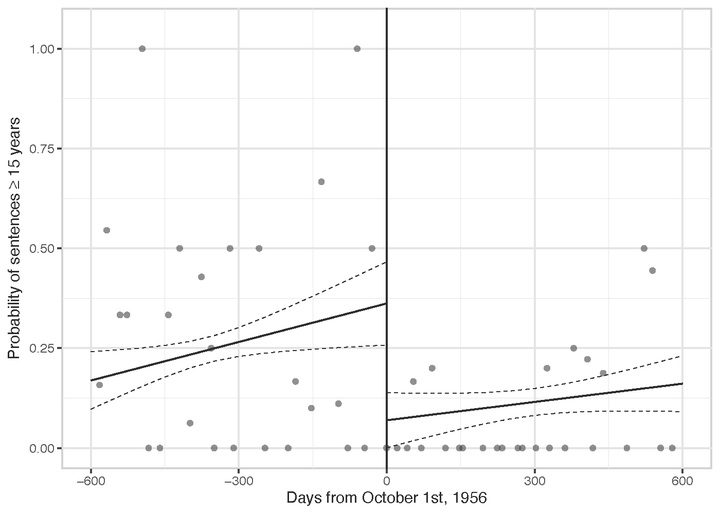The Law or the Career? Autocratic Judiciaries, Strategic Sentencing, and Political Repression

Why do judges sometimes act against autocrats’ will, even without judicial independence and tenure security? Contrary to the theory of strategic defection under weak governments, we argue that this behavior can also emerge under strong governments with lax monitoring. When autocrats primarily monitor severe political cases, judges can strategically downplay case severity to avoid oversight, thereby increasing judicial autonomy and the rule of law. Yet, these adjustments will be carefully calibrated–sufficient to evade scrutiny but not too drastic to trigger autocrats’ suspicions and incur sanctions against judges. We test this expectation with new data on Taiwan’s military trials during authoritarian rule, finding that judges tend not to issue sentences above a review threshold after its introduction. Sentence reductions are mostly moderate, affecting cases where sentences can fall slightly above or below the threshold under judges’ discretion. These findings have implications for understanding state repression and judicial agency in nondemocracies.
法律抑或仕途?威權司法、策略性量刑與政治鎮壓:
為什麼法官在缺乏司法獨立與任期保障的情況下,仍可能做出違背獨裁者意願的判決?本文提出一種與既有理論(即法官在弱政府下的策略性反叛)不同的觀點,認為這種不服從的行為同樣可能出現在監管寬鬆的強政府之下。當獨裁者的關注主要集中在重大政治案件時,法官可透過策略性地降低案件違法程度,來強化司法自主性,並間接推動威權體制下法治的實踐。然而,這種調整通常會控制在一定範圍內,既足以規避審查,又不至於過於激進,以免引發獨裁者的猜疑、介入或懲罰。為驗證此一觀點,我們分析了台灣威權統治時期軍事審判的解密檔案。研究結果顯示,在威權政府引入行政監督門檻後,被告遭判處超過該門檻的概率顯著降低。然而,這類減刑通常幅度不大,主要針對略高於審查門檻的案件進行輕微的刑度下調,且這些調整均落在法官合理裁量權範圍內。這些發現對理解威權政權下的國家鎮壓及司法機構的行為模式具有重要啟示。